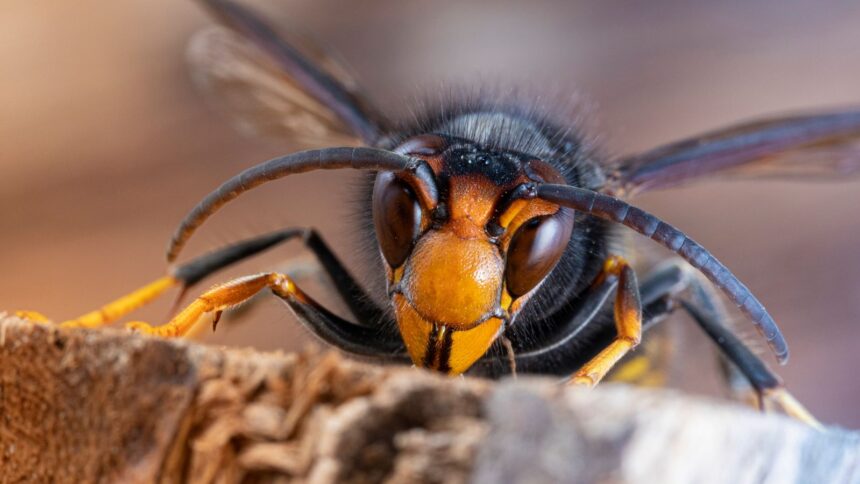Even while the development isn’t thought to be proof of a well-established colony, authorities are asking people to report any summertime sightings of the insects.
It coincides with warnings from environmental organizations that an increase in non-native invasive species may occur.
In the UK, reports of hornet sightings were made last year.
Although they can consume up to 50 honeybees per day, Asian hornets pose no more harm to human health than native hornets to honey bees and other insect pollinators.
Early trapping, according to DEFRA (Department of Environment, Food, and Rural Affairs), is “fundamental to eradication efforts”.
The risk of problem species expanding and spreading in the UK has increased due to recent flooding and increasing temperatures, according to the Wildlife and Countryside Link, a network representing 83 nature organisations.
In the run-up to the Chelsea Flower Show last month, Defra had already hinted that the insects might survive the winter.
“National Bee Unit continues to take action to eradicate the Asian hornet in the UK, and this spring rolled out trapping in areas where there was an increased risk that Asian hornet queens may have overwintered,” a spokeswoman stated at the time.
The genetic study has now established overwintering for the first time.







